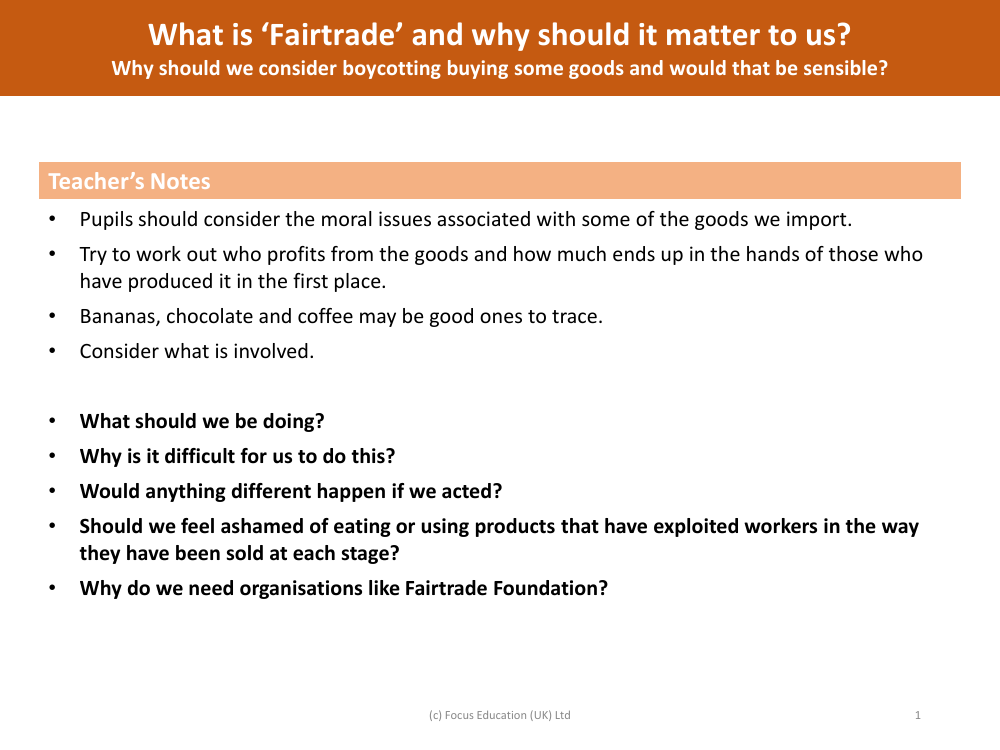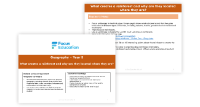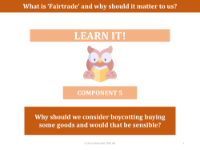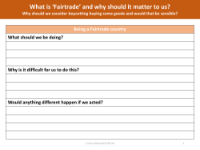Why should we consider boycotting buying some good and would that be sensible? - Teacher notes

Geography Resource Description
Boycotting certain goods is a topic that raises important ethical considerations and has the potential to influence global trade practices. Pupils are encouraged to delve into the moral implications of importing goods that may not fairly compensate the producers. The exercise involves tracing the journey and profits of common commodities such as bananas, chocolate, and coffee, to understand the distribution of financial gains and to identify who truly benefits from our purchases. It's an opportunity for students to consider the disparity between the profits made by companies and the often minimal earnings received by the original producers.
The concept of a boycott also prompts discussions on the practicality and consequences of such actions. Pupils are asked to reflect on the challenges of avoiding products that may involve exploitation and whether a collective change in consumer behaviour could lead to meaningful differences in trade and production practices. Additionally, the role of feelings, such as shame, when consuming products linked to worker exploitation is explored. This leads to the broader question of the necessity of organisations like the Fairtrade Foundation, which aim to ensure better prices, decent working conditions, and fair terms of trade for farmers and workers. Understanding what 'Fairtrade' stands for can help students appreciate the significance of ethical consumption and the impact their choices have on the global community.


